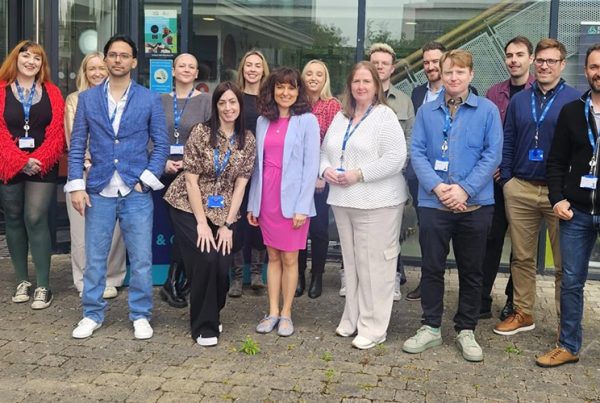
Muhammad Ali summed up his boxing style with the now famous phrase, “Float like a butterfly and sting like a bee.” This perfectly captured Ali’s ability to glide around the boxing ring yet unleash a mighty punch when required.
This phrase has stuck with me and for many years now and it is something I purposefully remember every time a prospective entrepreneur walks into the office or sends in a programme application form. For me, it forms a sort of yardstick that I always use to gauge an application: will this business idea float and does the promoter have a sting in the tail?
This yardstick is particularly useful during Phase 1 of the New Frontiers Programme. Often, nobody – neither the promoter nor the programme managers – knows if an idea will float and the purpose of this first phase is to help determine whether it could.
Float like a butterfly and sting like a bee
So, Phase 1 provides the sparring ring that allows participants to start to learn about their opportunity and to discover their skills. Is there a market? Will people buy? Can I sell to them? Can I make money? How much will it take to get something to the point where it can be sold? These questions are jabs, discovery punches, that allow us to size up the opposition. It allows us to determine the gap the business will have to cross to land a winning punch.
But that is only half of the yardstick; the second element is about the sting. Is the promoter determined to succeed? Does he or she have the necessary drive and commitment to make it happen? Does the promoter show real ambition? Phase 1 helps me to answer those questions, as I get to spend time observing and interacting with the programme participants.
How to prepare for Phase 1 of New Frontiers
With limited places available, what can a promoter do to strengthen their position before applying for Phase 1? I believe it’s important to have answers to the following:
What’s the real pain?
Talk to people (including some you don’t know) about your idea. What do they think of your offering? Is it solving a real world problem?
What’s the idea?
How will you solve the problem? How is it being solved at the moment? What makes your approach different? Brainstorm as many possible solutions to the problem as you can at this stage. Often, this can produce a much stronger proposition, which will help you get the support you need.
Go beyond your comfort zone
Don’t just discuss things with friends and family. Are you comfortable doing this? Get to know yourself; it will help you to honestly assess what skills you bring and those that you may need to bring on board.
Show commitment to the project
Keep a record of the time and cash investments you’ve made in the project to date. How many meetings have you had and with whom? Have you bought software, equipment, registered a domain, etc.?
Can you take the pain?
Starting out to build a business is not easy and getting into the ring will result in you taking punches. Are you willing to pay this price? Are you resilient enough?
Be under no illusion, to succeed in business and to progress onto Phase 2 of the New Frontiers Programme, you will need to learn how to float and sting. And to prove to others that you can.
About the author
 Garrett Duffy
Garrett Duffy
Garrett is the New Frontiers Programme Manager at Dundalk Institute of Technology. An Electronic Engineering graduate from Dundalk Regional Technical College (now DkIT), Garrett has held management and senior engineering roles in a number of multinationals in Ireland, the UK and France. He also ran his own engineering contracting business, with a customer base in Ireland and the UK.
 Garrett Duffy
Garrett Duffy








